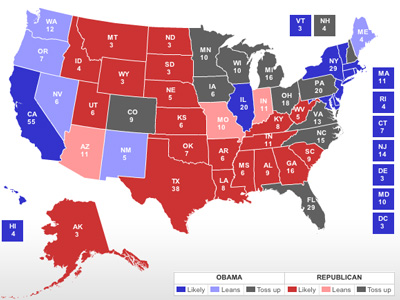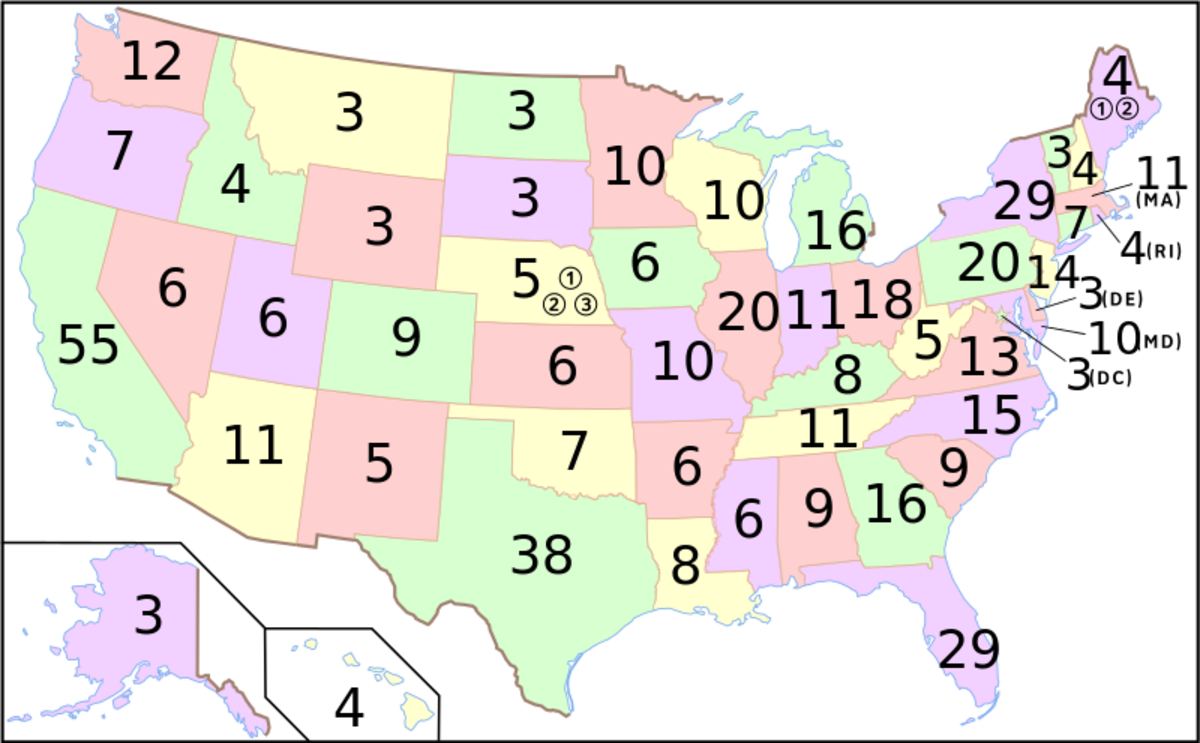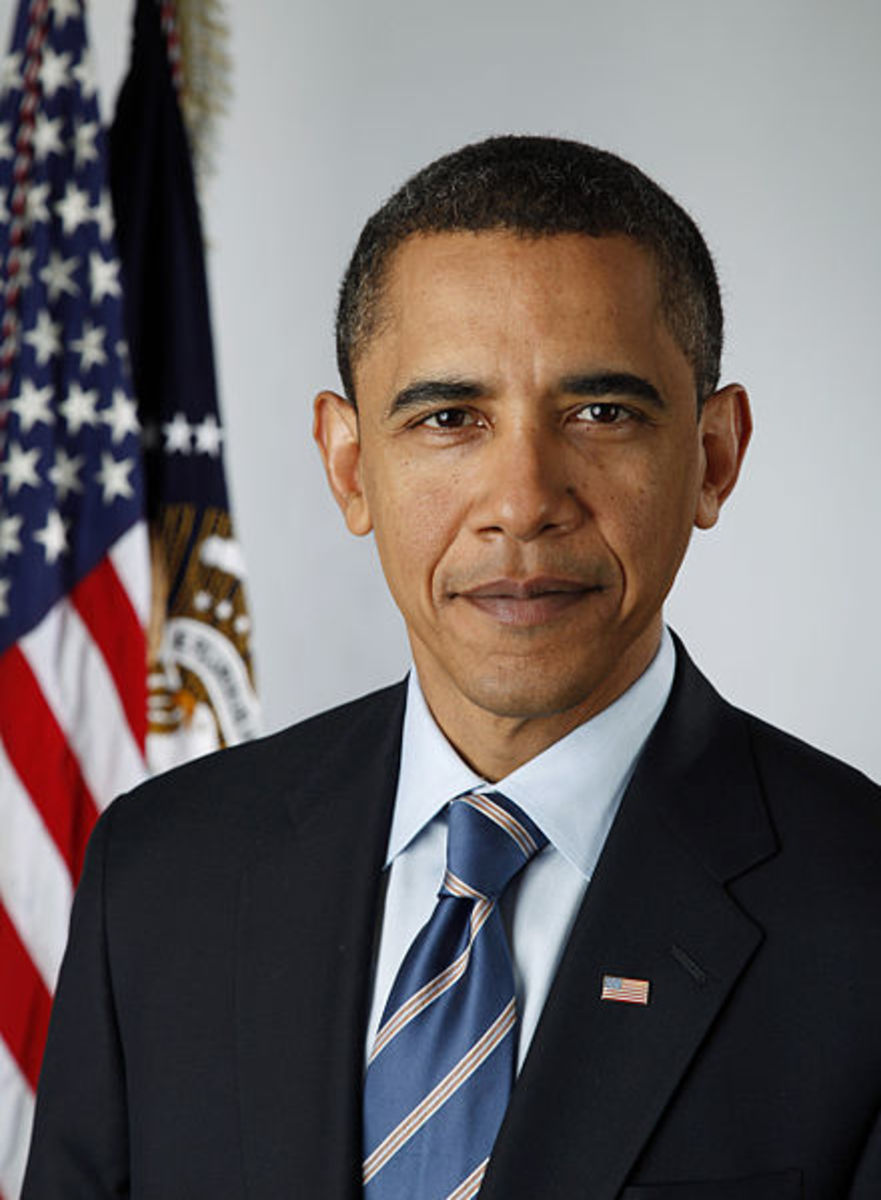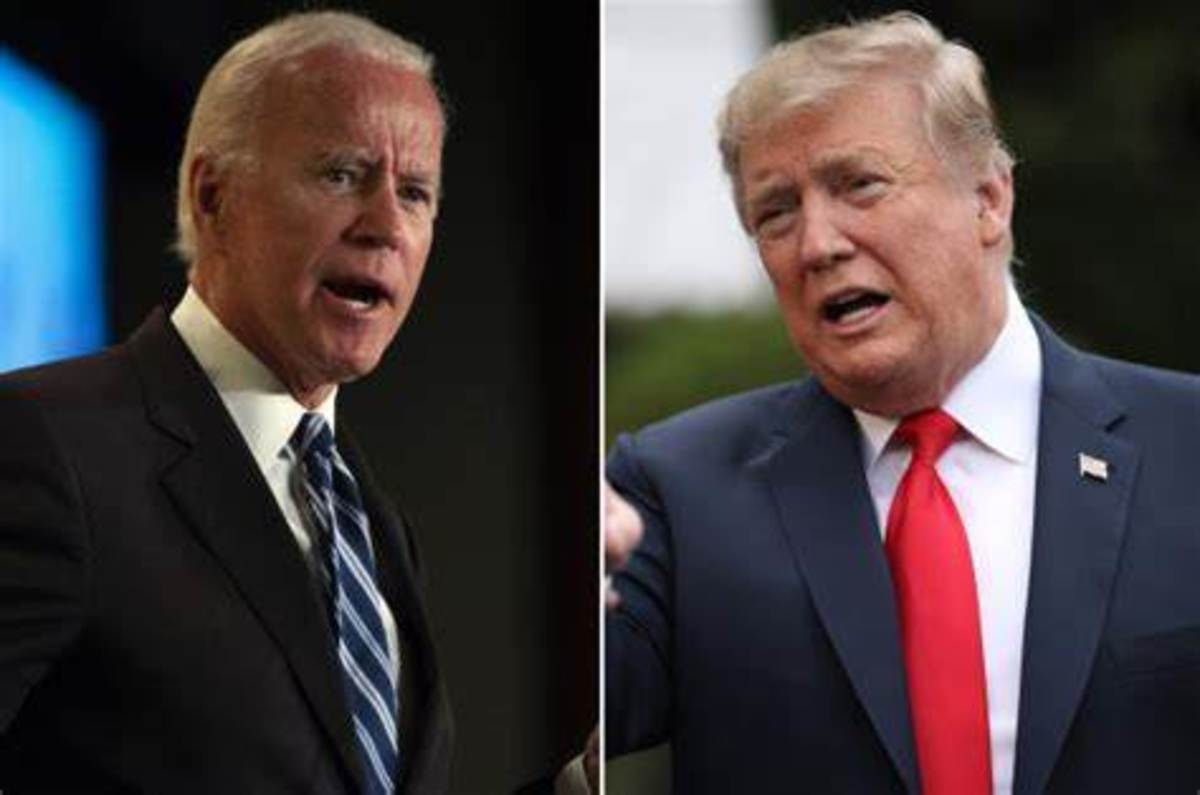2012 Guide to Swing States

As in years past, the 2012 Presidential Elections will be decided by a handful of contentious swing states. While the coasts remain strongly Democratic territory, and the south will vote mostly for the Republican candidate, recent years have seen other parts of the map fluctuate. The states that are in contention this year are many of the same states that decided the last few Presidential Elections. Only Indiana, a state that Obama won in 2008, seems sure to flip with Republican presumed nominee, Mitt Romney, consistently polling ahead there. Currently, June of 2012, it is assumed that Obama will pick up 237 electoral votes from those that are assumed “safe bets” for Democratic Presidential candidates, mostly along the coasts and a few Midwestern states, while Romney can rest easy on about 170 votes, mostly in the south and northwestern United States. What follows is the list of states that are widely accepted as “in contention” and why they matter.
ARIZONA (11 Electoral Votes)
Why It Matters: Won by McCain in 2008, it was a somewhat slim victory considering that this was McCain’s home state. Since the election, Arizona has stirred national debate with its tough anti-immigration laws and has seen an increase in Latino voters since then.
Obama Strategy: Obama’s campaign is serious about winning Arizona, and have made a serious attempt to register Hispanic voters in the state. If Obama were to lose more states in the Midwest than anticipated, then winning Arizona could be the key to a squeaker victory for the incumbent President.
Romney Strategy: Romney has the advantage in Arizona but he walks a fine line. The issue that will likely play out in this state is immigration. Romney will want to avoid ugly rhetoric on the part of his campaign and his supporters to keep it from poisoning the campaign as a whole, and the party, with Latino voters. Picking a running mate of Latino descent has been suggested as a way to get around this. Romney will focus on the economy here, as he plans to in general and he will count on a low Latino turn out to keep this state in the win column, at least this time.
Verdict: Romney has an average of a four point advantage in polls. It would take a massive new voter turnout to flip this state blue. As much as Obama would love to increase his wins in the southwest, this state will probably be more important to both parties’ long term strategies than it will in this election. Expect Romney to take it.
COLORADO (9 Electoral Votes)
Why It Matters: Bush won Colorado twice, but Obama flipped it last time. Polls show Obama having a slight lead here, but usually within the margin of error. 9 electoral votes could mean the difference between a win and a loss for either candidate.
Obama Strategy: Obama is focused on the economy and energy issues in this state. Colorado has a large coal industry, something that Romney has claimed is in danger under Obama, but it also has a lot of wind energy jobs being created, something championed by the Obama administration. Obama needs to sell his side of the story.
Romney Strategy: The Strategy here is to personalize an extension of his strategy on the whole. Expect Romney to attack Obama’s economic record, and make specific attacks on policies that effect Colorado’s economy directly. The economic outlook at the time of the election will effect which way this state will go.
The Verdict: You could literally flip a coin. Obama has a tiny advantage for now, but if voters feel uneasy about the economy in November, Romney could take it easily.
FLORIDA (29 Electoral Votes)
Why It Matters: The crucial state in the 2000 election is extremely important again. With the most electoral votes of any swing state, it could be the crucial state again.
Obama Strategy: While the Obama campaign has been putting work into winning Florida, it isn’t a must win for them, and they have spent just as much time trying to figure out ways to win without Florida. Democratic strategists are nervous about the state because of new voting laws that will keep traditionally Democratic voters from casting their ballots.
Romney Strategy: Romney has bent over backwards to appeal to Florida voters, a tough job since Florida is such a diverse state. Either his attempts to appeal to Florida voters will win them over, or he appears wishy-washy , making them more comfortable sticking with the incumbent.
The Verdict: Romney has a slight advantage here, and will do just about anything to win this state. If the deciding factor is who is going to want it more, I’d go with Romney here.
IOWA (6 Electoral Votes)
Why It Matters: Every vote could end up mattering, and Iowa has been the center of an issue that might tilt the election one way or the other, gay marriage.
Obama Strategy: Obama will campaign here, but he won’t likely get forceful with his arguments beyond his economic philosophy. Iowa legalized same sex marriage, due to a court ruling, and voters already ousted the judges involved with the case. Obama would rather Iowa voters forget about that, but his recent support of same sex marriage might cost him this state.
Romney Strategy: Once again Romney has a divisive social issue on the line when he wants to simply talk about the economy. Getting too focused on social issues in this state, could help him win here, but it might cost him votes in bigger states, where conservative social policy has been much less popular.
The Verdict: Obama once again has a slight advantage, but everything will depend on how Romney plays it, and how voters feel about the economy.
MISSOURI (10 Electoral Votes)
Why It Is Important: In 2008 the Missouri result was so tight that we didn’t know that McCain won until a few days after the election. Since Obama had won so handily, that didn’t matter much, but if history were to repeat itself in a closer election, Missouri could be the deciding state this time.
Obama Strategy: Of all the states in play, Obama’s team has chosen Missouri as a key to winning the least. He won’t ignore it, but the conventional wisdom is that this state has moved against Obama much more than other swing states have.
Romney Strategy: Consistently leading Obama in polls, expect Romney to try and instill the idea in Missouri voters that they got things right the first time.
The Verdict: Barring some kind of miracle, I think Romney has a strong chance of taking this state for the GOP again.
NEVADA (6 Electoral Votes)
Why It Is Important: A state with one of the highest unemployment rates, things have improved since Obama became President but not enough to deflect attacks from Romney.
Obama Strategy: Sell his overall economic message. If he can portray Romney as the cold hearted businessman and himself as the populist, he should have no trouble winning here again.
Romney Strategy: Radical Republican politics kept the GOP from winning a Senate seat here two years ago. Romney needs to walk the middle, make the case for himself and the case against Obama. Being a moderate in this state is a definite advantage and the large Mormon population can’t hurt.
The Verdict: Obama still consistently polls ahead of Romney here, even with unemployment the way it is. It seems very likely that 2012 will be a repeat victory in this stare.
NEW HAMPSHIRE (4 Electoral Vote)
Why It Is Important: The supposed “Libertarian” state may flip over opposition to Obama’s healthcare mandate, at least that was the word, but healthcare fervor has cooled and Obama still polls ahead of Romney here.
Obama Strategy: Bush won here in 2000, but the state has gone blue the last two elections. Obama’s support for gay marriage could actually help him in this state. He leads here by a 6 point average.
Romney Strategy: The line that Obama has oppressed freedom is a standard Republican talking point. Romney might use it here, but he will have a hard time selling this case, since Obama’s civil liberties abuses are mostly things he and his party support.
The Verdict: Expect Obama to sweep New England once again.
NORTH CAROLINA (15 Electoral Votes)
Why It Is Important: A bit of a surprise win for Obama last time, he will want to hold onto it, to at least prove he can win somewhere in the south, even if not the deep south. This one should be close.
Obama Strategy: There is a reason that the Democratic convention is being held here, Obama doesn’t want this to go without a fight, but coming out in favor of gay marriage after the state voted to ban it, may have cost him here.
Romney Strategy: McCain gave a tepid campaign here last time. Don’t expect Romney to make the same mistake. If he can keep his surrogates in line, already birthers have reared their ugly heads, he might be able to pull this state back in the red column.
The Verdict: Expect Romney to take this state back this time, unless Obama can hit him hard on his record as a venture Capitalist, or social issues and conspiracy turn the campaign ugly. Romney polls ahead of Obama in this state on a fairly regular basis.
OHIO (18 Electoral Votes)
Why It Is Important: The 2004 election was decided in Ohio and no Republican in modern politics has won the White House without winning this state.
Obama Strategy: Look for Obama to use the unpopular policies of Republican governor John Kasich to draw parallels to Romney. The state was the battleground for a pretty divisive union measure just last year, and voters probably haven’t forgotten about that yet.
Romney Strategy: There is a huge problem for Romney, he has to hit the party talking points, “right to work”, “union busting” etc. in a state that has rejected those things just recently. His only chance is to just hope voters buy the argument that Obama is doing a lousy job. Romney might pick Ohio senator Rob Portman as a running mate but it is questionable whether this would win the state for him, and might cost him votes elsewhere, due to Portman’s time working for the Bush administration.
The Verdict: If you throw out the numbers of conservative polling organization Rasmussen, most polls show Obama winning here by 5 points or more, virtually the same he did last time. While it isn’t out of Romney’s grasp, Ohio is likely to repeat a win for Obama.
VIRGINIA (15 Electoral Votes)
Why It Is Important: One of the larger states in the mix, both Obama and Romney have made this state a crucial part of their overall strategies.
Obama Strategy: This is another one of those states where the GOP have done Obama favors due to overreach at the state level. Requiring woman to who want abortions to have ultrasounds made national news and had an enormous back lash here. Linking Romney to this kind of thinking could be the key to defeating him in November.
Romney Strategy: This is another state where Romney is handicapped. He will be expected to focus on the economy while sticking to “pro-life principles.” He will get asked questions about birth control in this state and he can only duck them for so long.
The Verdict: Obama has a slight lead in this state, but it remains close. The specifics of the campaign will dictate the outcome, and the economic outlook in November, but Obama retains a slight advantage.
WISCONSIN (10 Electoral Votes)
WHY IT IS IMPORTANT: Like Arizona for Obama, this is Romney’s chance to redraw the map. Wisconsin has gone blue for five elections in a row, but it has been pretty close a good number of those, most notably in 2004.
Obama Strategy: The Obama campaign is worried about Wisconsin. They will hope that the recall of Republican Governor Scott Walker will bleed over into the Presidential Campaign, but the recall itself will mean a lot of GOP money pouring into Wisconsin, and a lot of it could be used to unseat the President.
Romney Strategy: This state will be the test of how effectively Romney can get his message across to an audience outside of the base. If he were to win here, even if he lost the election overall, it would be huge for the GOP and give them an idea of how to plan future strategies.
The Verdict: Like Arizona for Romney, Obama needs to campaign here, but he shouldn’t lose too much sleep over it. If Obama were to lose Wisconsin it would signal a problem with the resonance of his message to the country, not just to a single state. Expect him to win here, a little more narrowly than he did last time.






![American Politics: The BIG LIE in Politics, From The Republican Presidential Convention [124] American Politics: The BIG LIE in Politics, From The Republican Presidential Convention [124]](https://images.saymedia-content.com/.image/t_share/MTc2NDYyMjI1MzEyNjU1MzIy/the-big-lie-in-politics-from-the-conservative-side.jpg)

